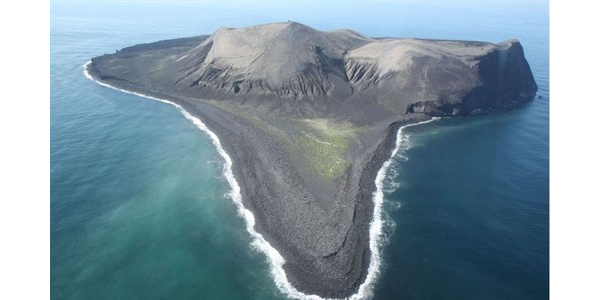
You can learn fascinating facts about your body whether you're a scientist, or just curious. There are thousands and thousands of biological system in the human body. Each is designed to do a specific job. The human body can be described as a vast and complex wonderland. The skeletal system, circulatory system, digestive system are just a few of the many topics you can study.
The human body is made up of about 7,000,000,000,000,000,000,000,000,000 (7-octillion) atoms. These atoms were created during the Big Bang 13 million years ago. The human body has 39 trillion cells in its microbial biome.
Teeth make up the skeletal system of the body. An adult's tooth has 32 teeth. Although teeth aren't considered bones, they are part and parcel of the skeletal structure. Enamel, the hardest substance in the body, is what makes teeth.

Adult human hearts beat approximately 36,500,000x per year. An adult's average blood supply is five liters. The adult bladder can hold 16-24 ounces of urine. Most people draw their lungs in the same way. The surface area in adult human lung is approximately 70 square meters.
More than 600 skeletal muscles make up the human body. Each muscle has two working parts. There are also muscles which pull in different directions. The human body can produce 20 tonnes of force. The heart is our only non-fatal muscle. The eye is made up of 2 million different parts and can distinguish 10,000,000 colors.
25 million cells can be produced by the human body every second. It generates enough heat to boil half a gallon of water in 30 minutes. It also produces heat that is useful for digestion. This heat helps maintain the body's homeostasis. The heart can create enough pressure to send blood 30 feet away.
There are 100,000 miles of blood vessels in the human body. The circulatory system consists of the heart, arteries and veins. It moves oxygen, carbon dioxide, and nutrients throughout the body. It also eliminates waste from your body. Two quarts of waste are removed from the body by the kidneys.

The human nose can distinguish between 50,000 smells. It also produces enough electricity to light one lightbulb. The ultraviolet light can be detected by the human eye.
The brain is the largest organ of the body. It contains 100 billion nerve cells. The adult brain requires more oxygen than any other part of the body. The brain can survive without oxygen for five to 10 min. The adult human brain is about three pounds. It uses about 20% of the oxygen the rest of the body does. It also contains more nerve cells that the Encyclopedia Britannica. The brain generates more electrical impulses per day than all of the telephones in the world combined.
There are more than 500 functions within the human body. These functions include digestion, filtering out waste and breathing. The liver is sometimes called the "chemical plant" of the body.
FAQ
Do you wonder how much trash is produced each day across the globe?
According to the United Nations there are more than 25 billion tons of garbage produced each year.
Most of this trash ends up in landfill dumps or incinerators.But what happens when those dumpsters get full? Most of that trash is shipped out of the country. It then gets dumped in foreign countries, polluting their ecosystems. However, now we know where all that trash goes. Mike Sexton is his nickname. He is the founder of Waste Watchers. He watches over trucks that transport trash across North America. He then gives us a report on what happens next.
Sexton said he enjoys his job. "We've got a lot of fun," he told CNN. "We see these big trucks coming through town, so we'll keep following them. "Sexton began following truck drivers almost 20 years ago.
"It's all I felt," he stated.
He loved the story of the driver who pulled into an abandoned gas station near Los Angeles. "The guy was looking for someplace to put his load," Sexton recalled. "He drove along the road and saw this structure. He stopped and pulled up, then he went inside. "There were two huge roll-off containers there filled with stuff. The man took all the stuff out and filled up his truck with more. He then looked around and decided to load everything. There were many old tires, furniture, rags and mattresses. "It was a complete mess. But it had been cleaned before he arrived. There wasn't any trash anywhere."
What is the explanation? Well, the answer is that this particular location used to be part of a recycling center.People who learned about this facility would drive here to recycle their trash. Sexton explained, "They would bring their household goods and take them here," and they would then empty the containers.
This can happen hundreds of times a week. It can happen hundreds of time per week. Eventually, the truck is so full of junk it stops running. And eventually, the owner decides to abandon the vehicle.
But, this isn't the only problem that our planet is facing.
These tiny plastic particles make up the majority of the particles. Some end up in incinerators or landfills. Some end up in rivers and oceans, while others end up in fish's stomachs.
Experts say if nothing changes, we could soon face a global food shortage. One expert said, "If we keep going as we are going, we're never going to make it," but most people don’t seem concerned.
How does the brain control the functions of your body?
To ensure that other organs and muscle functions work together, the brain sends messages. Everything in your body is controlled and managed by your brain. It tells your stomach how to digest food and your lungs how to inhale oxygen; it also tells your arms, legs and feet to move.
Your brain is made up of billions upon billions of nerve cells that are connected together in groups called neuronal groups. Neurons communicate with each other by sending electrical signals called action potentials on axons. Each neuron has a cell membrane surrounding its nucleus. There are channels within the membrane that allow ions such a sodium or potassium to enter and exit the cell. The neuron is lit by an electric charge created by the movement of ions.
Neurotransmitters, which are chemicals that release neurotransmitters when a neuron fires up, can be found in the space between the neurons and the next one. Neurotransmitters bind with receptors on the second nerve cell, opening ion channel channels to allow ions in and out. The second neuron also fires.
Neurotransmitter production occurs when a neuron in the presynaptic receives an impulsive signal from another. An impulse travels along a synapse that connects the two neurons. The transmitter binds directly to the receptors in the postsynaptic nervous neuron, and triggers the firing.
The nervous system relies on neurotransmitters for communication. They also coordinate activity between different brain parts.
What is the most secretive location in the entire world?
It may surprise you to hear the answer. This may make you feel uncomfortable as it challenges your perception of reality and the way we live. But there is a reason that this place exists. It isn't what you would expect.
It was also called the City of God in ancient Greek. It was called the City of Destruction by the Bible.
It's known in India as Kashi (Kashmir). It's also known as Novgorod in Russia.
But here in America, it goes by another name - The Town That Disappeared.
One tiny town in western New York State lost its 1,200 inhabitants without trace. It was abandoned without any remains, including no bodies, cars, or houses. The only thing that survived was a road sign, which pointed to its former location.
The little village vanished, with no trace of its existence. Some believe the earth swallowed them up. Others claim a meteorite strike destroyed it. Some believe that it was taken by aliens.
The people of this once-thriving community, however, are positive that the town won't disappear forever. They had just moved to another town.
There is even a website dedicated to tracking the disappearance of the lost city of Zugspitz.
You might be wondering where this town went. It's in Switzerland.
You can find Zugspitze at the border of Austria and Germany. Just beyond the summit of the mountain is a huge lake called Lake Zugspitze.
It has always fascinated me that so many towns have disappeared, yet some still remain. Is it possible that some towns disappear and others are preserved? I decided to investigate.
I wanted to know more about the mysterious disappearing towns. What causes a community to disappear? How can one place become extinct?
There are several theories behind the disappearing of towns. One theory suggests that a community disappears when all of its buildings are removed. Another theory is that the town moves to another place. The third theory is that the town was never actually there.
Although theories may be a bit speculative, it is a fact that numerous towns have been destroyed by the elements. This video looks into the history of those places and investigates their current status.
These 5 facts are amazing about the liver
The liver is responsible in breaking down toxins, storing vitamins and mineral, and for regulating blood pressure. It also regulates blood pressure, and maintains our body's temperature.
Are you familiar with the expressions, "I feel sluggish today", or "my head feels heavy"? These symptoms may indicate problems with the liver.
You may notice symptoms such as dark urine, yellowing skin and fatigue. But these aren't the only warning signs. You should immediately consult your doctor if you have any of these symptoms.
The liver is a vital organ. It is responsible for detoxification as well digestion, metabolism and immunity.
-
The average adult liver weights about 1,400g.
-
The size of a baby's liver at birth is approximately half that of an adult. By age three, it is about four times larger than that of an infant.
-
The liver is located just below the rib cage on the left side of the abdomen.
-
There are 16 main lobes in the liver, but many smaller lobules are inside the lobes.
-
Red blood cells make up approximately 10 million of the liver's total.
Statistics
- Your mouth makes a lot of saliva every day It might seem like way too much, but your salivary glands typically produce anywhere from 0.5 and 1.5 liters a day, according to a 2009 study published in the Journal of Medicine and Life. (romper.com)
- It might not sound like something that's truly plausible — and it is quite rare — but according to a 2015 study published in the Asian Cardiovascular & Thoracic Annals, it's possible to hurt yourself and even break a rib just by sneezing. (romper.com)
- According to a 2018 study published in Free Radical Biology & Medicine, this is because blood pressure is regulated by our innate circadian rhythm and internal clock. (romper.com)
- The average human adult male heart rate is between 70 and 72 beats per minute, while the average for adult women is between 78 and 82 beats, which is significantly faster, according to 2014 published in the Journal of Clinical and Diagnostic Research. (romper.com)
- "It is estimated that 75% of people have at least mild gum disease, with the most common symptoms being bleeding when brushing, bad breath, and dark and swollen gums," Dr. Ron Baise, a London-based dentist, tells Romper. (romper.com)
External Links
How To
Hollywood scandals that shocked the globe
Nothing is more shocking that seeing someone be famous for their wrong reasons. But there's also nothing worse than seeing them fall from grace.
It's fascinating to see how industries react to their mistakes. Many celebrities have used alcohol and drugs in excess. Some even died young because of it.
It's worse when stars make public their problems, and then are ignored by everyone. That's where we found ourselves last week.
After a long and successful career, Heath Ledger finally succumbed to his demons. He died after succumbing to prescription drugs.
His friends and family struggled to accept the loss of his son, while the media blasted him openly.
Heath was once considered to be one of today's most talented actors. He was nominated for two Academy Awards for his performance in Brokeback Mountain.
Heath not only acted, but also wrote and directed films including A Knight's Tale. Monster's Ball. Iron Man.
Hollywood loved Heath, however he soon grew too big for his good looks. He started taking drugs and drinking heavily. He eventually went to rehab and was clean.
Now that he was sober, it was time to make amends. So he made a documentary called "Room 237," which chronicled the making of The Shining. It was supposed to be released this year, but now it won't hit theaters until next year.
Heath was unsuccessful in his attempts to get back into Hollywood. In fact, Heath was twice arrested on drug charges.
Although we don't think Heath should be allowed to return to the showbiz, However, it would be nice if he could get some help before things spiral out of control.
We hope Heath’s story can be an example to other people who believe they can still have it all.